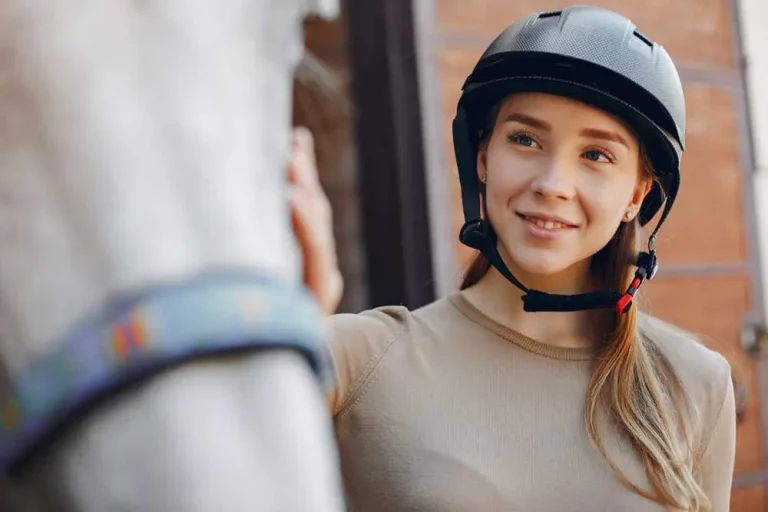8 Oct 2025
Vets, nurses, yard managers, practice leaders, researchers and health and safety experts join forces with safety helmet manufacturer to address safety risk concerns.

Image: prostooleh / Adobe Stock
Stakeholders have agreed to develop dedicated protective helmets for equine vets after a study revealed their high risk of injury.
Vets, nurses, yard managers, practice leaders, researchers, health and safety experts from CVS Equine and the University of Liverpool, and representatives from leading sports and industrial safety helmet manufacturer Uvex gathered in a “landmark” meeting to address the issue.
The diverse group agreed a collaborative approach is essential to developing a helmet to satisfy safety standards and the practical needs of equine vets, with further consultations and PPE trials to follow.
They hope to develop a helmet option that will be widely adopted across the industry.
CVS funded the wide-ranging research – led by lecturer in veterinary public health at University of Liverpool, John Tulloch – that prompted the meeting, and in response to the findings the group changed its policy from discretionary to mandatory helmet use for all employees handling horses.
The study consisted of a survey asking CVS UK’s equine, production animal and mixed animal clinical practice employees about injuries suffered at work. It found that 94.3% of equine clinical staff had received a work-related injury during their career.
Equine vets had the highest rate of injuries caused by an animal (83.3%), with 22% of their most severe injuries being head injuries. The paper noted head injuries are more likely to be caused by environmental impact – such as being knocked into a wall or on to the floor – than a direct kick.
Only one-fifth (20%) of equine vets were wearing a helmet when they suffered their most recent injury, and just 17% during their most severe. The majority (81.7%) of equine vets took no time off work for their most recent injury, while 63.3% did not file an incident report. Vets reported not wanting to put pressure on remaining staff by taking time off, wanting to minimise their sick pay usage and accepting injury as simply being part of the job.
The paper concluded the findings are “suggestive of a profession with a culture that does not prioritise health and well-being” and that it is “hard to justify the lack of helmet usage when working with horses”.
During the meeting, frontline professionals shared their issues with currently available helmet options, such as riding helmets and emergency service headwear.
It is said they called for lightweight, ventilated helmets balancing safety and practicality, including the ability to accessorise with head torches and visors and not restricting peripheral vision.
Participants also discussed methods to normalise helmet usage among equine vets and facilitate a culture change focusing on safety as a core value within the profession.
CVS Equine director Sophie Ignarski said: “This initiative represents a significant step forward in improving workplace safety for equine veterinary professionals in terms of helmet design.
“It is recognised that cultural change within the equine veterinary sector will take time, but CVS is committed to driving this change by investing in research, implementing policy based on the evidence and exploring helmet design.
“If the adoption of protective helmets saves just one life or prevents someone from sustaining life-changing injuries, then it is worth it.”